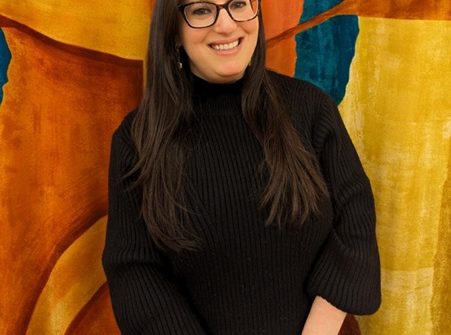It has been a bit of a week. Lots of serious illness, and several close deaths. One of those was of Rabbi Israel Elia, the rabbi that performed our wedding nearly 19 years ago. Rabbi Elia was a Tunisian Jew who trained here in the UK as a young man, and served the Spanish and Portuguese communities tirelessly his entire career. He only retired very recently. The very first time we met I was a student Rabbi, and Gary and I had decided to attend the wedding course being run at Lauderdale road synagogue, under whose auspices we were marrying. The powers that be had said we didn’t have to attend as they realised we were slightly more knowledgeable than the average couple they marry, but out of professional curiosity I wanted to see what they put into such a course.
We began the first meeting with each couple introducing themselves. When the circle came around to me before I had even said I was a student Rabbi, Rabbi Elia started beaming and said ‘Ah yes! I have heard all about you! I always say hello to my lady colleagues in the cemeteries!’ A welcoming if slightly odd gambit, until you realise that the first two Reform cemeteries in London, Hoop Lane and Edgwarebury, have always been shared with the Spanish and Portuguese with whom we had split away from almost 200 years ago. Indeed the last time I saw Israel, about a year ago, was at Edgwarebury where he was conducting the funeral of a friends father. As always Israel was warm, chatty, and caring. He had a particularly soft spot for Gary, who shared with him a love of a particular Tunisian fig eau de vie called ‘Boucha’.
Gary was able to attend Rabbi Elia’s packed funeral at Hoop Lane on Tuesday evening, while I stayed home with the kids. His report of the proceedings included a fascinating eulogy from Rabbi Joseph Dweck, the spiritual head of the Spanish and Portuguese community. Rabbi Dweck told the assembled congregation that they, and he, all needed to seek forgiveness from Gina, Rabbi Elia’s widow, and their children. Ellul doesn’t start until next week, so why the need to already begin asking for forgiveness? Rabbi Dweck explained that Rabbi Elia gave whatever he could to whoever asked. Rabbi Dweck, as the communities senior rabbi, knew that he and the whole congregation had at times stolen Rabbi Elia from his family.
I am not telling this story in order to ask everyone to stop being so demanding, not at all, but for us all to reflect on the impact of how and what we give. The Torah this week asks us to give a good proportion of our produce – the end result of our own hard labour, to either God or to the poor and vulnerable in the community. There are different ways of giving, one of which is the idea of a 10% gift. A Christian friend of mine religiously gives to a different cause every month, and always at a rate of 10% of her income after tax. The tax, she argues, is like leaving the corners of our fields so that all in society can benefit. The 10% is a gift given to something important to her that would help create a better world for herself and the community around her.
There are a number of economic commands in the portion this week, from tithing to remission of debts. But when we think of giving and of sacrifice today, there are multiple ways to give and to help. Donating funds is one that remains core to many Jewish institutions, and increasingly we might give through donations to a charity shop (which can even be gift aided now!) And as many here do, we can give with our time, as Rabbi Elia did. But as Rabbi Dweck pointed out, that giving needs to be done in a way that protects the giver. It is easy to always ask the same people, or to rely on someone who can’t say no. But we also need to support those who tend to go above and beyond. As Cheryl Sandberg explained in her book ‘Lean in’, often we don’t even notice the labour done by those around us, but by leaning into that unpaid and often unrecognised labour and giving, we can lighten the load.
Our portion forms part of a biblical model seeking economic justice and parity, community support for central functions via the Levites, while also allowing for growth and ambition. Whether we give financially or of our time, we know of course that we as givers benefit too, both from the sense of contributing something meaningful and knowing it ensures community will be there for us when we have need. An important example at the moment is the folk out front, week in week out, volunteering on security as their way of giving to community. But as our High Holiday coordinator Sharon Garson pointed out this week, if everyone aged 18-60 volunteered to do security in this community (and we know not everyone can), it would mean one shift every 2 years. Any increase in volunteers would relieve the burden placed on the few. The Torah asks us to give our best, and to give a significant portion of our best. But it doesn’t ask us to leave ourselves damaged by the giving. We all have to take responsibility for how we give, but we can also help others balance what they do. Torah creates a system where the burdens are shared in order for communities to flourish together. It’s not a radical idea, but it’s one I could certainly try to remember from time to time.
May we all be blessed in our giving, and blessed in our receiving, cain yehi ratzon, amen.



